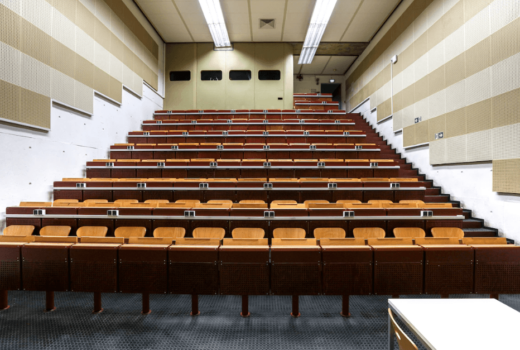Business schools blijven groeien

“Last year, 107 students started their MBA study at our businessschool”, states Marianne Schouten, spokesperson of the RotterdamSchool of Management (RSM).”This year, our MBA cohort increased to 150.” In the Netherlandsand all over the world, business schools face a significantincrease in applicants. Many attribute it to the consequences ofthe financial crisis leaving many people with the fear to losetheir jobs.
“Students want to stir their further career” and therefore seekfurther qualification in MBA degrees that bolster their chances inthe job market. However, another contributing factor at the RSMcould be that recently the duration of the MBA program was cut from15 months to 12 months. Schouten explains this decision by thestrong wish by students for a short comprehensive program.Especially in this economically difficult situation MBA studentswant to avoid spending too much time out of their jobs atuniversities without receiving any income.
Competition with Asian Ivy-League
However, one can also interpret this move as a reaction toglobal trends and fiercer competition with Asia. Business schoolsin the US and Asia are already cutting down on the length of theirMBA programs. Especially Asian business schools have gained moreconfidence in recent years. Four Asian institutes have recentlyjoined forces and created ‘
Its four members (the Hong Kong University of Science &Technology, the China Europe International Business School, theNanyang Technological University and the Indian School of Business)all rank amongst the 30 top business schools worldwide according tothe Times Ranking of Higher Education. The cooperation will mainlybe based on marketing measures addressed to European and Westernprospective MBA students. Its supporters point out that Asia has anextraordinary position in the world economy with its growth rateaveraging around 10 % while European countries lag behind with 1-2%. Its rapidly growing economies open up doors for many highlyskilled Western students with a first step being an MBA study atAsian universities.
Numbers show that this approach works. Approximately 80% of allWestern students that complete a study in Chinese universities stayin the country and find a job in one of China’s strivingenterprises. Another advantage of Asian business schools is theirrelatively short study duration and low tuition fees. Receiving anMBA in the US usually takes 2 years with costs totalling $100,000.The same degree is obtained within 1 year in most Asian businessschools. On average foreign students pay only $50,000 then.
Fantastic Four
“There’s the Ivy League in America, so we thought why can’t weAsian business schools do the same kind of thing” states NickSoriano, director of marketing and admissions at Nanyang inSingapore. To what extent this group of Asia’s ‘fantastic four’will be able to compete with its counterparts in America, the IvyLeague, remains unclear. An earlier attempt to establish an eliteleague of universities in Europe (
Ms. Schouten voices similar scepticism stating that she expects’Top Asia B-Schools’ to be growing in the short-run, but facingchallenges to sustain this growth in the long-run. For this, allfour institutes have to show they can obtain accreditation frominternational renowned agents such as EQUIS and ASCB.
Business Schools Adapting Curricula
Another trend seen in the USA is that American business schoolsstarted adapting their curricula in response to the financialcrisis. Being among the first, the Harvard Business School createdan MBA course entirely dedicated to questions of how this crisisemerged and what lessons should be learned. Other US institutessoon followed and implemented courses tackling issues such as riskmanagement and ethics in the financial world.
The Rotterdam School of Management (RSM) does not see thenecessity for such steps. According to Marianne Schouten, the RSMwas already heavily stressing issues such as corporate socialresponsibility and the like even before the crisis. Changing theprogram would be therefore not necessary. This policy stands outgiven the fact that the Dean of the RSM, George Yip, himself oncestudied at Harvard where he received his MBA and DBA (Doctor ofBusiness Administration).
Meest Gelezen
Wederom intimidatie van journalisten door universiteit, nu in Delft
‘Burgerschapsonderwijs moet ook verplicht worden in hbo en wo’
Raad van State: laat taaltoets nog niet gelden voor hbo-opleidingen
Vrouwen houden universiteit draaiende, maar krijgen daarvoor geen waardering
Extra geld voor bètafaculteiten is daar nooit terechtgekomen



